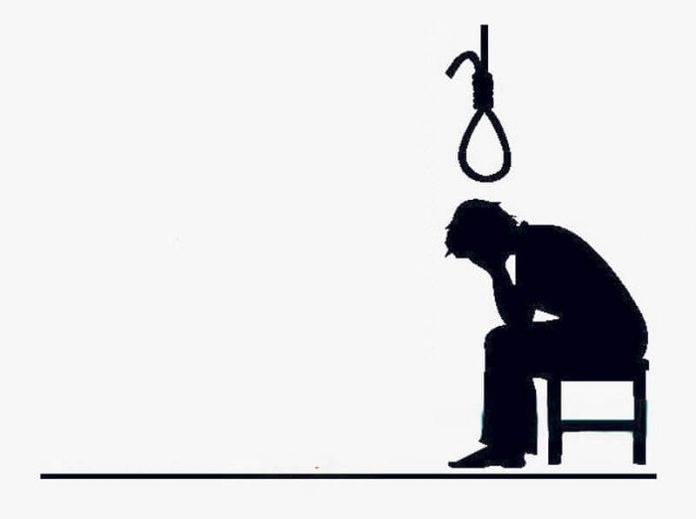This article is written by Abhinav Anand, from DSNLU, Visakhapatnam. This article deals with the abetment of suicide by married women and its consequences. It examines various provisions of the Indian penal code and other relevant laws for the protection of women from domestic violence.
Table of Contents
Introduction
The offences against the married woman are common in our country. The Indian legal system has tried to address this concern of married women by incorporating several penal sections which punish the abettor of such offence. The patriarchal society has already different methods to buttress the woman. This article deals with the provisions of IPC which penalises the abettor of suicide by a married woman. It also discusses other laws for the protection of women from domestic violence.
Provisions of IPC
Section 306 of IPC talks about the abetment of suicide if any person commits the suicide whoever abets the commission of the suicide shall be punished with the imprisonment which may extend upto 10 years and shall also be liable to fine.
Section 107 talks about what amounts to abetment.
A person is said to abet the commission of a thing:
- Instigates any person to do that thing;
- Engages in with one or more than one person to do the conspiracy t which is illegal and anything happens in pursuance of that conspiracy, or in order in doing of that thing;
- Intentionally aids, and in commission or illegal omission of that thing.
Explanation 1- a person by willful misrepresentation or willful concealment of the material fact which he is bound to disclose voluntarily causes, procure or attempts to procure aid to doing that thing is said to instigate that thing.
Explanation 2- Whoever prior to or at the time of the commission of the act facilitates or does anything towards the commission of the act is said to doing of that thing in the act.
Section 108 talks about the abettor; he is the person who abets either the commission of the offence or the commission of an act which is an offence and committed by a person capable of committing the offence and not having similar intention as that of the person who abetted the offence.
Explanation 1- the abetment of an illegal omission of an act may amount to an offence although may not be bound to do that act.
Explanation 2- to constitute the offence of abetment it is not necessary that the act abetted is constituted or the effect requisite to constitute the offence is caused.
Essentials for invoking Section 306 of the IPC
-
Suicide is must
In case there is no proof that the death has occurred due to suicide then this section cannot be involved. The necessary ingredient in this section is that death must happen because of suicide.
-
Active assistance and participation
The active assistance and participation of the abettor at a point of time, prior to the commission of the offence is a must for making him liable under this section.
-
Direct nexus or implied nexus
There should be direct nexus between the alleged accused and the death of the accused under Section 306 of IPC. there must be direct nexus between the effect of abetment and the abetment itself.
-
Abetment to be judged in the context of the entire evidence
In Brij Lal vs. Prem Chand & Ors., the Apex Court observed that what would constitute the instigation of the offence would depend upon the facts of each case.
While deciding that the liability of the abettor should not be seen in isolation the court has to consider the entire facts and circumstances of the case.
In Gurbachan Singh vs. Satpal Singh & Ors., the evidence of witnesses testified to the lusty and greedy nature of man they taunted the deceased and torture her. They also alleged that she is carrying an illegitimate child. All these factors drove her to take the extreme step and she burnt herself by sprinkling kerosene oil on her body. All the accused were held guilty by the Supreme Court.
-
Presumption of abetment of suicide
The necessary condition to establish under Section 113 A of the Indian Evidence Act:
- It is required to prove that suicide has been committed by women.
- There should be allegation on her husband and any other relative to instigate her to commit suicide.
- The commission of suicide must be within 7 years.
- She has been subjected to cruelty by her husband or any other relative.
-
Husband inciting wife to pour kerosene oil amounts to abetment of suicide
In Arjun Kushwaha vs. State of Madhya Pradesh, the question whether the accused had abetted the suicide of the deceased. The dying declaration showed that the deceased was asked to take the child to the 1st floor to which she replied she just came on the ground floor. The husband intervened in between and told her wife why she was replying to her mother in law. The accused did not stop, he started beating her wife with fisticuffs and despite many warnings, he continued his acts. Wife went into the kitchen and sprinkled kerosene oil while the accused continued beating her. She burnt herself. The court considered the act of the husband an abetment and convicted him for the same.
-
Husband beating wife immediately before commission of suicide by her
The prosecution in Syeed Miya vs. State of Madhya Pradesh, accused the appellant of being used to maltreat and beat her wife. She used to complain to her parents. Prior to the commission of the suicide, the husband had beaten because of the frustration she committed suicide. She committed suicide within two years of the marriage and it was also proved that the accused used to beat her. In the post mortem report, it was stated that there was a contusion found on the head of the deceased which made it clear that she was subjected to physical cruelty before her death.
So the case under Section 306 is made out against the accused.
Section 498 A of the IPC provides for the husband and relative of the woman subjecting her to cruelty. Under this section, the husband or any relative of the husband subject the women to cruelty shall be liable to fine which may extend to 3 years and also be liable for fine.
The expression “cruelty” defined under this section as:
- Any willful conduct which may drive woman or is of such a nature as it drives the women to commit suicide or injury to her life, limb or health (mental or physical).
- Harassment of the woman where such harassment is of the views with coercing or any of her relatives to meet any unlawful demand for any property and valuable security.
The complaint under Section 498 A can be filed within 3 years of the alleged incident and in exceptional circumstances, the complaint can also be entertained after 3 years if the court is satisfied that there is sufficient ground to consider the complaint and to protect the interest of justice.
The complaint under Section 498 A can be filed by the aggrieved woman or any of her relatives or in absence of any of the public servants as notified by the government on his behalf.
The Kerala High Court after considering many decisions on how, to constitute an offence under this section, stated that the parties must have gone some sort of ceremonies with the object of getting married. A woman in a live-in relationship cannot file a complaint under this section.
Other relevant laws
THE PROTECTION OF ABUSE FROM DOMESTIC VIOLENCE ACT, 2005
Section 3 of the act provides what amounts to the “Domestic Violence”:
- Harms or injures or endangers the life, limb, health or well being whether mental physical or tend to do so or cause physical, mental, emotional abuse.
- Harasses, harms, abuse with a view to coerce her or any of her relatives to meet any unlawful demand of dowry or any other property.
For this section “physical abuse” means any act or conduct that poses danger to life, limb or health(mental or physical).
“sexual abuse” includes any conduct of sexual nature that abuses, humiliates or degrades the dignity of women.
“Verbal or emotional abuse”
- Insults, ridicule or humiliation for not having a child or not having a male child.
- Repeated threats to cause pain to any person to whom the aggrieved person is interested.
“Economic Abuse” includes
- Deprivation of all the economic and financial resources to which the accused is entitled to or which the aggrieved person required out of necessity but not limited to the economic necessity of the person or her children.
Landmark case laws
-
Arjun Jagannath Kushwaha vs. State of Madhya Pradesh
The prosecution case was that the husband, in this case, has demanded a sum of 5000 rupees for the motorcycle. He was paid the amount and he again demanded some amount of money for the motorcycle so that was also paid. One day the mother in law had asked the wife of the accused to take the kid on the first floor to which she replied she just came on the ground floor. The altercation extended and the accused started assaulting his wife. Then the wife after being enraged set herself on fire and died subsequently.
The court after listening to the counsels of both sides drew the conclusion that the death has occurred because of the beating and maltreatment by the husband in the present case and the case under Section 306 is made out and hence convicted the accused.
-
Gurbachan Singh vs. Satpal Singh & Ors.
In this case, the daughter of Gurucharan Singh, Rabinder Kaur was married to Satpal Singh and she committed suicide within 7 years of her marriage. The reason behind her suicide was the constant torture, harassment and maltreatment by her husband.
The Supreme Court convicted the accused under Section 306 of the IPC and observed that the reasoning of the trial court of considering the circumstantial evidence and preponderance of probability is correct. It also emphasis on the statement of the prosecution witness and section 113B of the Indian evidence act while reaching to the conclusion. `
-
The State of Punjab vs. Iqbal Singh
In this case, the wife set herself and her children ablaze and died at her husband’s house. The woman got married before 7 or 8 years and she was working as a teacher and her husband was a clerk. Soon after the marriage, there was a dispute between both of them for dowry and the relatives of the husband usually harassed and mistreated her for the dowry. She has complained regarding the same to the police authorities and later on restrained from taking the matter further as everything was settled. One day she set herself and her children ablaze and an FIR was lodged by the mother of the deceased.
The trial convicted the accused under Section 306 of the IPC and held that if the death of women occurred after marriage then the husband can be squarely held liable under the ambit of Section 306 because he may provoke or instigate the women to commit the suicide.
Conclusion
The effective laws for the protection of women need to be implemented by raising the conscience of the society in which the woman should be looked at par with the man. The society should accept the woman as an asset and learn to respect them. Furthermore, the implementation of laws should be done strictly. With the changing times, the woman needs to stand for them and also should bring the culprits under the eyes of the law. Then, they can pave the way to a safe future for the coming generation.
LawSikho has created a telegram group for exchanging legal knowledge, referrals and various opportunities. You can click on this link and join:
 Serato DJ Crack 2025Serato DJ PRO Crack
Serato DJ Crack 2025Serato DJ PRO Crack











 Allow notifications
Allow notifications


